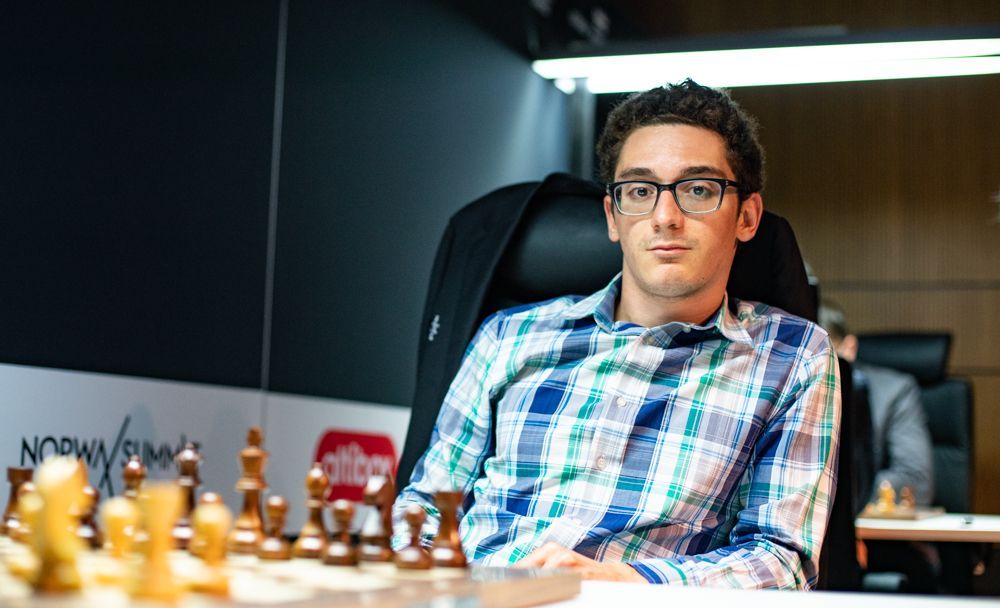
The Greatest Genius In Chess History
The dispute about the strongest player in chess history will never be settled. Indeed, how can anyone say what the result would be of a match between Paul Morphy and GM Bobby Fischer if you could bring both of them to our time and give three years to prepare with modern engines and databases?
Recency bias is always present in such discussions, so people tend to prefer modern players. I was shocked by an outrageous statement of a strong grandmaster and famous online personality who claimed that GM Fabiano Caruana could give a blindfold simul to the first five or six world champions and beat them!

Today, I am not talking about playing strength of the great champions of the past and present. I am more interested in figuring out who was/is the greatest genius. Playing strength and the amount of chess talent that someone possesses is not the same. Read my article about Sultan Khan, for example. I am well aware of the fact that he wasn't the best player in the world even in his own time, and yet, he is undoubtedly one of the greatest natural talents our game ever saw.
So, how can we measure talent? To me, it is a chess player's ability to find paradoxical decisions that would be way ahead of their time—the discoveries that advance our understanding of the game. Let me give you a simple example. Everyone knows Gioachino Greco as an attacking master. But look at the following game:
In this game we can see many elements of modern play: spatial advantage on the queenside, a central outpost, usage of the long diagonal, and an opposite-colored bishop endgame. Let that sink in. An opposite-colored bishop endgame over 400 years ago! At the time when most of the games would be over by move 20 by a direct attack against the king.
You can argue that today most of the masters would be more than capable of playing this game like Greco, if not better. That's true because they would use the well-known patterns discovered by the previous generations of chess players. So, to me, Greco is certainly one of the candidates for the title of "Greatest Chess Genius Of All Time."
Now compare the following well-known games:
Both games are exquisite examples of an endgame technique, but of course the largest credit goes to Jose Raul Capablanca, since GM Magnus Carlsen knew the game of the great Cuban and used his ideas.
Here are two more positional gems:
Both games feature stunning examples of trading a "good" knight for a "bad" bishop. But again, the main credit goes to Capablanca. It is games like these which produced a common opinion championed by GM Mikhail Botvinnik that Capablanca was the greatest genius in chess history.

Then Carlsen entered the building.
Readers who are familiar with my past articles know that I am biased. I doubt that I have mentioned any player more than Carlsen in my articles. Looking at his games, I sometimes have a feeling that just like the protagonist of the hit movie Universal Soldier, Magnus Carlsen was produced in a secret laboratory as the ultimate chess player.
While most of the breakthrough ideas of Capablanca can be easily explained to a beginner, it is impossible to do the same with most of Carlsen's moves. That's why I suggested in my old article that many of Carlsen's games are not suitable for inexperienced players.
Here is one of Magnus' astonishing ideas. Find Carlsen's move in the following position:
Did you find the solution? I bet that most of you traded the bishops with 30.Bxf7+ and then played 31.Nb3 protecting the d4-pawn. More sophisticated players would probably play 30.Rd1, indirectly protecting the pawn. Now try to explain to a beginner why White gave up a pawn.
While it was a difficult exercise, the following sequence of moves from the same game is really beyond a human's abilities. That is the regular humans and not a super-genius like Carlsen. Try to find it:
After moving his pieces to their best positions, the rest is matter of a simple technique for Carlsen:
I am sure you already know where I am going. Indeed, I was about to crown the greatest genius in chess history.

Well, have you noticed that there is always that pesky "but" or caveat? My favorite poet Alexander Pushkin famously said in his classical Mozart and Saliery:
"Genius and evildoing are incompatibles."
The recent "game" between Carlsen and GM Hikaru Nakamura featuring 1.e4 e5 2.Ke2 Ke7 and a draw following after a repetition of king moves was pure chess evil. I concede that Pushkin is not completely right here since, for example, Fischer is obviously a genius despite his evil anti-Semitic rhetoric. Magnus Carlsen can play Ke2 on move two or even Ng1-d3 on the very first move (yes, I know it is illegal), and he will still be a genius. But Capablanca would never pull such stunts!



